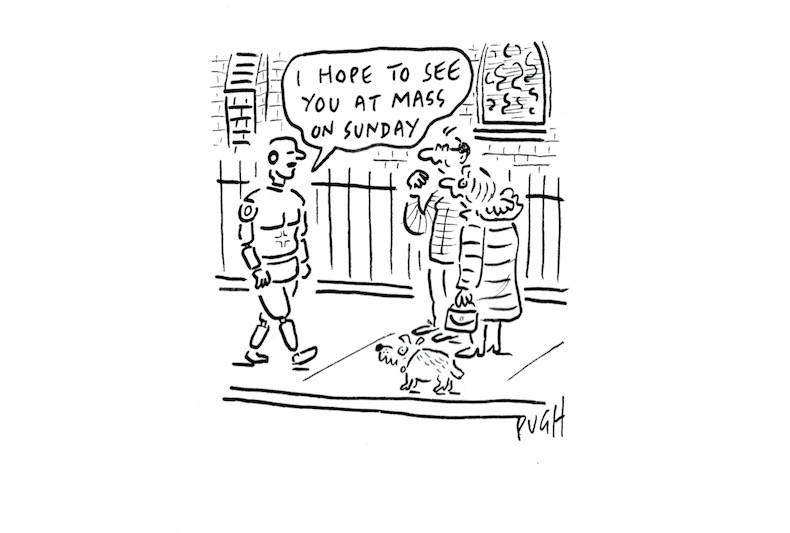Over the centuries, the priesthood has survived existential threats ranging from martyrdom to the French Revolution.
Now it faces a new danger – being replaced by AI algorithms.
That is the claim of a new poll published in a Government report.
The Department for Education study analysing the impact of ChatGPT systems on the job market ranks priests and vicars at number 12 in a list of 365 jobs mostly likely to be at risk from AI.
Telephone salespeople top the list, followed by solicitors and psychologists. Streets traders are ranked the fifth category most at risk. However, the danger of AI replacing clergy is less than chatbots doing the work of government administrators, ranked at number 11 in the survey.
The statistics were based on the key skills used in each profession, including written comprehension and inductive reasoning, and how easily they could be replicated by AI.
Fr Alban McCoy OFM Conv, editorial consultant with The Tablet, said: “The observation that philosophy usually buries its undertakers strikes me as even more applicable in this case.
“To say that AI will replace priests suggests a very truncated, post-reformation and secularist view of what priests are and what they’re for, implying that their fundamental role is preaching. It leaves out of account completely their sacramental role, by which I mean not just administering the sacraments but being themselves a sacrament, as we all are in different ways, some more explicit than others but no less real.”
John McManus, head of media communications at the Jesuits in Britain said: “What strikes me is that there is no comparison between the spiritual services provided by a priest and what AI can replicate.
“Priests offer a face-to-face interaction that AI can't do. It’s programmed. Human beings are not programmable creatures. They have souls. An AI programme can never hope to replace the spiritual services and empathy given by priests. Priesthood has a sacramental side.”
He added: “More importantly, the advent of AI will make those services, including empathy and listening, even more sought after. It will even place them at a type of premium, though of course, they will remain free.”



 Loading ...
Loading ...